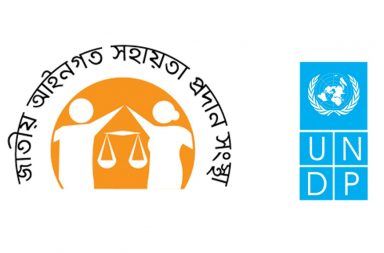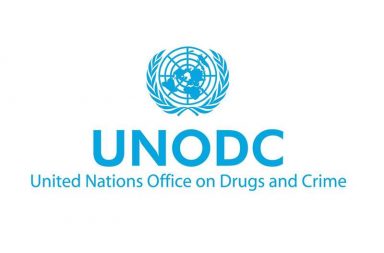By Raihan Rahman Rafid
Kenya, a part of the region known as the cradle of humankind, is a poverty-stricken country in a continent where judicial independence is still solidifying itself in the political sphere. Interestingly, the Supreme Court of this African nation delivered a preceding judgment declaring the presidential election invalid, a judgment that affirms independence of the judiciary hoisting the flag of rule of law but most importantly establishes the supremacy of the constitution.
The “Rule of Law” as understood today in its broadcast connotation means a government of laws and not of men where the rulers are subject to laws, where state powers are separate, especially an independent judiciary would have the right of judicial control over executive acts.
The Kenyan Constitution in the preamble recognizes the aspirations of all Kenyans for a government based on inter alia, equality, democracy, and the rule of law. The judiciary is independent according to Article 160(1) of the Constitution of Kenya which is the supreme law of the Republic as laid down in Article 2(1). Further the constitution declares unlawful any attempt to establish a government otherwise than in compliance with itself in Article 3(2).
The Supreme Court, however in Article 163(3), is inferred with exclusive original jurisdiction to decide upon matters related to elections to the office of President arising under Article 140; which indeed is an exceptional power arising directly from the Supreme Law ipso facto, making it a distinct feature of the Kenyan constitution.
A petition was filed by veteran opposition leader Raila Odinga who complained of the voting results being manipulated and hacked in the presidential election held on August 8. The six-judge bench ruled 4:2 in favor of him, as the judges found that the election commission had failed, neglected or refused to conduct the election in a manner consistent with the dictates of the constitution.
The constitution dictates in Article 86, Independent Electoral and Boundaries Commission (IEBC) shall ensure that— (a) whatever voting method is used, the system is simple, accurate, verifiable, secure, accountable and transparent; and (d) appropriate structures and mechanisms to eliminate electoral malpractice are put in place, including the safekeeping of election materials.
On the contrary, during the election the core tools of electoral management dictated by law and publicly promised to voters were not actually used, the IEBC also conceded to not using the electronic transmission system they were required to, and instead relied on text messages and photographs of forms filled manually as sources of information. Some forms provided by the IEBC didn’t even carry serial numbers or bar codes, some were merely simple lined paper with numbers scrawled on them.
Article 81(e) promotes free and fair elections by secret ballot free from violence, intimidation, improper influence or corruption; transparent; and administered in an impartial, neutral, efficient, accurate and accountable manner. But unfortunately the election failed to meet the constitutional criteria even resulting into post-election violence with death of at least 24 persons.
Consequently, the Supreme Court found that the IEBC failed to deliver on basic democratic principles of transparency and rule of law that should guide any election. As per Article 140(3), the court determined the election of the President to be invalid, thereby ordering a fresh election within next sixty days.
Initially, Kenyatta dissented to the judgment calmly and expressed his respect towards the judiciary but his later statements proved to be equivocal and derogatory. Criticizing not just about the judge’s decision but also the judge’s actual authority in public, the state-head surely has sparked the tension between judiciary and executive which may subsequently give rise to constitutional imbroglio or a crisis in the state.
The judges are the protectors and interpreters of the constitution, a safeguard to the law on behalf of the people. The people themselves vested sovereignty over the judiciary through the constitution which allows the judges to decide upon any matter in accordance to the law, despite not being elected by people directly.
As far as the jurisdiction is concerned the Kenyan Judiciary acted in accordance to the mandates of the constitution, furthermore exercising the freedom it has acted to the essence of the rule of law. With a history of bloodshed, the elections had regularly intertwined dispute, followed by deadly violence. As a pioneer Chief Justice David Maraga puts his name in history books as the first African CJ to oversee the annulment of election results, establishing high democratic standards for elections in Kenya.
According to the resolution of International Commission of Jurists as well as the Universal Declaration on the Independence of Judiciary unanimously held at Montreal in 1983, an independent Judiciary is an indispensable requisite of free society under the rule of law. The maintenance of independence and impartiality of the judiciary both in letter and spirit is the basic condition of the operation of rule of law, and as such ensuring the liberty of the people and human progress. The Kenyan Judgment is indeed a worldwide reminder of the power of the judiciary and that greater things can be achieved provided that the branch of state is independent from the influence of politics.
Raihan Rahman Rafid is an undergraduate at Department of Law, University of Dhaka. He is a Bangladeshi legal activist and can be reached at raihanrrahman@gmail.com



